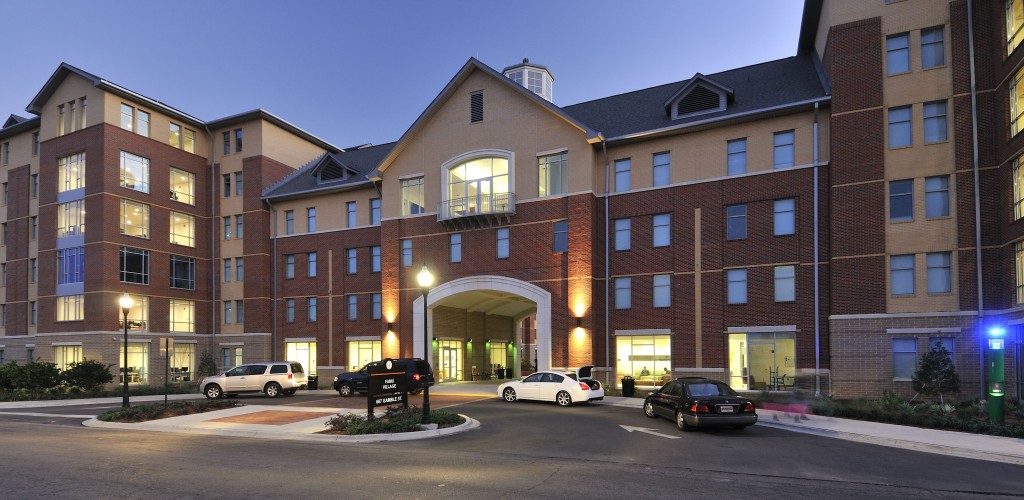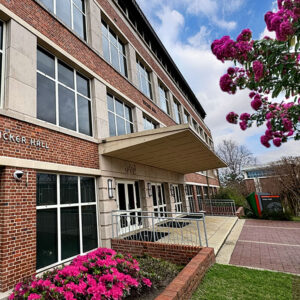COVID-19 | February 7th, 2022
Residents in Village, Phase Will Not be Moved to Isolation Dorms
By: Micah Barkley

COVID-19 cases in the greater Tallahassee area have been on the rise since the start of the new year, accumulating over 5 million cases in the area since the start of the pandemic. While FAMU cases have reportedly lowered, students residing in Lt. Polkinghorne Village and Phase are still concerned that they will not be moved to isolation dorms if they contract the virus.
Palmetto North, an apartment-style residence hall that was slated to be torn down years ago, is the official isolation area for sick students. However, with a limited capacity in Palmetto North, students in Village and Phase – residence halls with individual rooms with a shared common area – are forced to isolate themselves in their own dorms.
The CDC has reduced the suggested quarantine time from seven to five days with precautions of six-feet social distancing and wearing a mask for five days after. Though COVID-19 cases are decreasing, following an Omicron surge in Leon County, isolation housing still is a grave concern for students and parents. Many students cannot stay in off-campus housing to isolate, themselves because of the risk they pose to public health while in hotels or even the mounting financial burden of paying to stay off campus.
“The Omicron variant affected many more individuals than we have previously seen during this pandemic”
Tanya Tatum, the Director of Student Health Services at FAMU, explained that the school has always had a limited number of housing for isolation and is not in a position to provide an off-campus living for students who have contracted COVID-19.
“We make every effort to accommodate students as we can, however, the Omicron variant affected many more individuals than we have previously seen during this pandemic,” Tatum said, pointing to the recent spike at the start of the semester. It is unknown how many isolation rooms are available, but according to Tatum, “There are only nine on-campus students in isolation as of January 27, 2022.”
“It’s not fair to someone who has COVID-19 to continue being in the space when they have a roommate”
Kyla Mays, a freshman student who resides in Village said, “FAMU needs to start finding ways to accommodate these students.” For Mays, not being offered the ability to move if she or her roommate contracted COVID-19 is unsettling. “It’s not fair to someone who has COVID-19 to continue being in the space when they have a roommate,” she said.
Residents with roommates who have the virus still worry that the shared common areas put them at risk for exposure. While non-infected roommates are advised to take precautions with the room’s sanitation to feel more at ease, Village resident Christa Thrower disagrees with this notion.
“If they are sick with a highly contagious virus, then I don’t want them in the same room as me or using the same appliances that they are using,” Thrower said.
Jayla Royal, a freshman resident in Phase 3, says while temporarily relocating is an inconvenience, it’s her only option if her roommates contracted COVID-19. “[I would] remove myself from the situation by simply packing my things and going back to my hometown until two negative test results have been submitted.” Royal says that someone who does not take the proper COVID precautions could cost her life with her weak immune system.
“It will be up to each student to make good decisions for themselves and for the people they share their living space with to help minimize transmission of COVID-19”
Tatum explains that the Department of Housing is accommodating to the test numbers of on-campus students. “We expect everyone to wear masks indoors and vaccinations are strongly recommended. We ask everyone to screen themselves for symptoms and have made testing available on campus.”
As of late, FAMU can only mitigate rising cases among students by urging students to be more cautious as of now. “It will be up to each student to make good decisions for themselves and for the people they share their living space with to help minimize transmission of COVID-19,” Tatum said.






